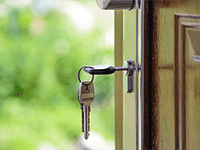
There are many different borrowing options available, which can make choosing the right loan a hard decision.
One of the main choices is whether to use a secured or unsecured loan, but what is the difference?
Basics of a secured loan
Secured loans allow you to borrow a certain amount of money for a set period.
With this option, an asset is used as security. Usually, these are properties, but some lenders will accept other valuable items.
To qualify, you must either own a home or have another valuable asset.
Using a property as security means if you consistently fail to make monthly payments, your house may be repossessed.
Therefore, you need to carefully assess if this is the right option before applying.
Basics of an unsecured loan
Unsecured loans don't require any assets as security. In other words, you can borrow money from a lender without needing to secure it with any valuable possessions.
Lenders rely on your credit score and your commitment to repay the loan.
However, because there's no security, lenders see them as a greater risk. So, they may charge higher interest rates.
If you can't make payments, the lender can't take your property or another asset to recover their costs. Instead, they may take legal action, such as issuing a county court judgement. This can harm your credit score and make it harder to get finance in the future.
Therefore, although your property may be safe, there are still risks involved with this option.
Key differences
The primary difference is that one uses an asset as security, whilst the other does not. However, there are a few other key differences that are worth noting.
First, secured loans can allow you to borrow a larger sum of money with a lower interest rate, as having a property as security reduces the risk to lenders. However, this is dependent on other factors related to your circumstances.

In comparison, unsecured loans tend to allow a smaller amount to be borrowed with a higher interest rate, because lenders are taking on a greater risk.
Secondly, using your home as security may help you access longer repayment terms, ranging from three to thirty-five years. This means you may be able to achieve lower monthly repayments. On the other hand, unsecured loans are typically available over one to ten year terms. However, while a longer term can make for a lower repayment, it will also mean that you will pay back more in interest in the long run.
Thirdly, unsecured loans generally require less paperwork and can be paid out very quickly. Whereas, secured loans usually have more paperwork to be completed and may take longer to pay out.
Which loan may be suitable for you?
A suitable loan is one that meets your specific borrowing needs, so the right option is dependent on your circumstances.
It also depends on whether you are eligible for the funding option. For example, if you do not have a property to use as security, an unsecured loan may be the better fit.
Before applying for any type of finance, you need to assess your circumstances carefully.
Think carefully before securing other debts against your home. Your home may be repossessed if you do not keep up repayments on a mortgage or any other debt secured on it.




